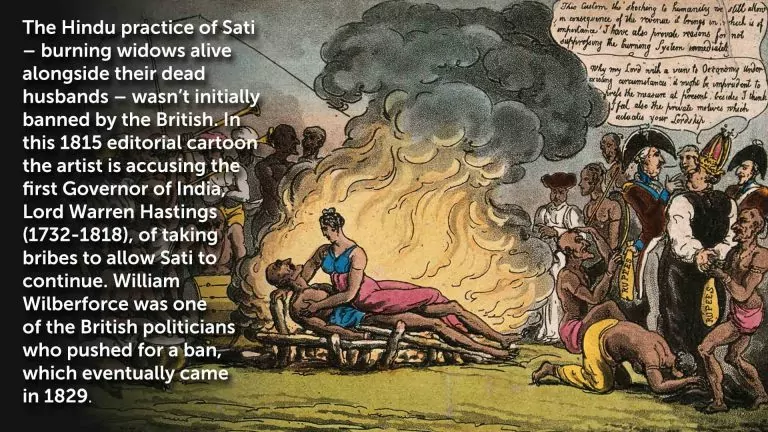Yes, in so far as one culture can be more Christian than another
*****
Can one culture be better than another? We use to think so. We used to understand that Western values — those that are rooted in the Judeo-Christian tradition — were values worth promoting, and values that could adequately replace other cultural values.
The West was best
But the West’s values aren’t what they once were. Today what we are best known for now is the promotion of “values” like gay marriage and abortion. No longer are we famous for our freedom and democracy, but rather Internet porn, pop music, and Hollywood films. One can scarcely blame people for assuming that the West is populated by sex-crazy hedonists, since our pop culture icons usually are precisely that.
When we contrast these values with those of other cultures there wouldn’t seem a better or worse – it seems more a matter of different – and we find cultural barbarism practiced on both sides. Some cultures circumcise little girls; some abort them by the millions. Some drape their women in body bags; others produce entertainment celebrating the pornographic destruction of the feminine. Some deny women their inherent rights; others consider the destruction of life in the womb to be one of them.
So the West’s values as they are, can hardly be said to be superior. And yet even now there is a shadow of what once was. And even that shadow shows that one sort of culture – Christian culture – is superior. A controversial thing to say, sure, but the Christian religion is one that makes universalist claims and has a universalist message.
Some differences remain
Consider this example from a report by CNN reporters Jake Tapper and Kim Berryman:
Sergeant 1st Class Charles Martland, the Green Beret being separated involuntarily from the U.S. Army for kicking and body slamming an Afghan police commander he describes as a “brutal child rapist,” began telling his side of the story Monday. Martland is under a gag order imposed by the Pentagon, but at the request of Rep. Duncan Hunter, R-Calif, he wrote a statement detailing his actions on Sept. 6, 2011, which was obtained by CNN…
“Our ALP (Afghan Local Police) were committing atrocities and we were quickly losing the support of the local populace,” Martland writes in his statement. “The severity of the rapes and the lack of action by the Afghan Government caused many of the locals to view our ALP as worse than the Taliban.”
Quinn and Martland were told by a young Afghan boy and his mother, through an Afghan interpreter, that the boy had been tied to a post at the home of Afghan Local Police commander Abdul Rahman and raped repeatedly for up to two weeks. When his mother tried to stop the attacks, they told the soldiers, Rahman’s brother beat her. Quinn says he verified the story with other ALP commanders from neighboring villages…
“While I understand that a military lawyer can say that I was legally wrong, we felt a moral obligation to act,” Martland writes.
In short? Sergeant Martland was kicked out of the Army for interfering with something that was considered to be none of his business, even though what was happening was brutal child rape.
The Christian contrast
Now contrast that with a different example. Sati is a now-obsolete practice of an Indian widow immolating herself on the funeral pyre of her husband, but it was once widely practiced. In fact, when the British colonial forces first arrived in India, they ignored these practices, considering it outside their mandate to limit the cultural practices of others, no matter how repulsive.
However, Christian influences inside Great Britain soon effected a change in policy, and the British began to view civilizing as synonymous with colonizing. British officer Charles Napier is famous for his response to a number of Hindu priests who complained about the British prohibition against widow burning. As related by his brother William, Napier responded:
Be it so. This burning of widows is your custom; prepare the funeral pile. But my nation has also a custom. When men burn women alive we hang them, and confiscate all their property. My carpenters shall therefore erect gibbets on which to hang all concerned when the widow is consumed. Let us all act according to national customs.
Regardless of your views of colonialism et al, I think it’s important to recognize the words of a man who is confident defending his national customs, and confident in their moral rightness. Today’s West doesn’t recognize objective morality, and doesn’t recognize any concepts of right and wrong. And thus, the “values” we end up promoting both politically and culturally end up being a relativism that is understandably repulsive to many.
We used to know how to combat cultural practices and values that we recognized as repulsive: put forward and promote an objectively better set of values, those rooted in the Christian tradition.
Short of that, we have no adequate response. As I wrote after the shootings in the Charlie Hebdo offices in Paris, we are too often presented with a false choice: The barbarism of some cultures versus the lazy, blasphemous nihilism of our own.
Conclusion
Christians in the West need to be intellectually honest, even when it hurts. We need to reject both in favor of a third way, one that is mocked and ridiculed by cultural elites as it has been for 2,000 years. It is, after all, the only way that has survived both decadence and barbarism many, many times before. Christians passed laws against infanticide, banned gladiatorial combat, destroyed the Trans-Atlantic Slave Trade, and led the movement against segregation. We need to share what it is like to have a culture better than any other – a culture that is Christian.
Christianity has been declared dead by the elites time and time again. Each time, this demise has been greatly exaggerated. This time will be no different.
Jonathon Van Maren blogs at The Bridgehead, where you can also find his podcast. This post was first published in the December 2015 issue.











